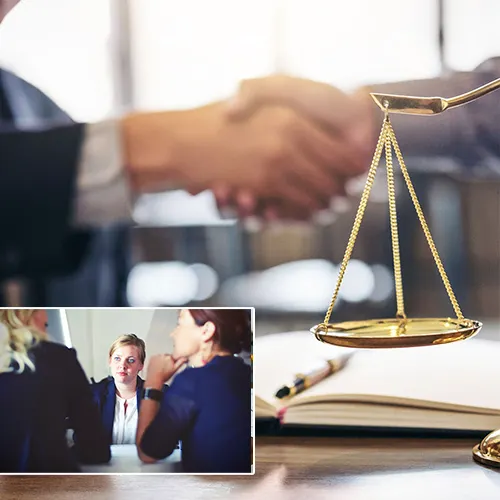Know Your Rights: Recording DUI Traffic Stops Explained
Table of Contents []
Recording DUI Traffic Stops
Understanding Your Rights During DUI Traffic Stops

Encountering law enforcement can be a daunting experience, particularly during a DUI traffic stop where the stakes are considerably high. At Fulbright & Jaworski LLP, we empower you with the knowledge needed to navigate these situations legally and confidently. We believe that an informed citizenry is a protected one, which is why understanding and exercising your rights to record these interactions is paramount. Remember, these recordings may serve as pivotal pieces of evidence, capturing details that might later be contested in court. We are committed to education and support, ensuring you know exactly how to handle these tense encounters.
Our guidance extends beyond just words; we offer connections to legal professionals who specialize in cases involving recorded traffic stops. With the click of a button or a simple phone call, you can access the expertise necessary to make the most of your recordings. Don't hesitate to reach out to us for any clarification on the legal implications or best practices for recording a traffic stop. Reach us quickly and effortlessly at (213) 892-9200 for answers or to make an appointment.
Your Right to Record
During a DUI traffic stop, knowing your rights is the first line of defense. In the United States, you are typically within your rights to record police officers who are performing their duties in public. This is considered a form of free speech protected by the First Amendment. Nevertheless, there are nuances and regulations which can vary by state. At Fulbright & Jaworski LLP, we recommend remaining calm and informing the officer that you are recording for everyone's safety and legal compliance.
It is essential to do so politely to avoid escalating the situation. Recording can be a legal safeguard for both parties, creating an objective account of the encounter that may prove invaluable down the road.
Navigating State Laws
Navigating state laws can be tricky as they fluctuate widely across the country. Some states may have specific statutes regarding the recording of conversations, particularly when it comes to audio recording. Many operate under a 'one-party consent' rule, meaning that only one party involved in the exchange needs to consent to the recording-this can be you.
It is vital, however, to be cognizant of state-specific eavesdropping or wiretapping laws that might impact your right to record a traffic stop. Our team at Fulbright & Jaworski LLP is equipped with the knowledge of these variations and can guide you through the legal landscape specific to your location.
Best Practices For Recording
When recording a DUI traffic stop, discretion and adherence to certain best practices are encouraged. Start recording as soon as it is safe to do so, ideally before the officer approaches your vehicle. Keep your hands visible at all times and inform the officer that you are recording calmly and courteously, without being confrontational.
Ensure that your recording device is in a fixed position so that it is not mistaken for a weapon or a threat. Respect any instructions from the officer relating to your direct safety or legal directives. If you're uncertain about the right steps to take, our advisors at Fulbright & Jaworski LLP can provide the counsel you need to protect yourself within the scope of the law.
The Essential Role of Recordings in Legal Proceedings

Recordings from DUI traffic stops can play a critical role in legal proceedings, providing tangible proof of what transpired. They can corroborate statements, clarify discrepancies, and sometimes offer the clinching evidence that decides the outcome of a case. At Fulbright & Jaworski LLP, we understand the gravity these recordings hold in court. Therefore, we stress the significance of not only recording the stop but doing so effectively.
Our network of adept legal professionals can leverage these recordings, analyzing them to reinforce your defense or challenge the prosecution's claims. They are astute in pinpointing inconsistencies and ensuring that any evidence procured during the stop upholds legal scrutiny. If you have recorded a DUI stop, contact us immediately at (213) 892-9200 so we can offer assistance on the next steps.
Recording Devices and Storage
Knowing the technical aspects of the devices you use to record can greatly influence the quality and admissibility of the evidence. Smartphones are the most common recording devices, but it is crucial to start the recording smoothly and ensure the device has enough memory and battery life to capture the entire incident. We advise checking these before you start driving.
Further, storing the recording securely and backed up in the cloud or an external drive is vital for safeguarding this crucial evidence. Our experts can offer advice on reliable apps and storage options that may prove critical in the safekeeping of your recordings.
Admissibility in Court
The admissibility of recordings in court rests on various factors, such as the quality of the recording, how it was obtained, and whether it captures relevant and material information without infringing on privacy laws. It is our priority to ensure your recordings meet these criteria, providing you with solid groundwork should your case proceed to trial.
Our legal professionals can dissect the specifics of your recordings to ensure they comply with legal standards, thus paving the way for a clearer path through the judicial process.
The Impact of Quality Recordings
Quality recordings have the potential to bring clarity to otherwise disputed elements of a DUI traffic stop. The clarity of audio and visual detail can be invaluable-whether it captures the procedural correctness of a field sobriety test or the exchange of information between you and the officer.
At Fulbright & Jaworski LLP, we recommend procedures to enhance the quality of your recordings, such as using high-resolution settings and ensuring adequate lighting. These factors can significantly improve the evidence's efficacy in a courtroom setting.
Fulbright & Jaworski LLP's Comprehensive Support and Guidance

At Fulbright & Jaworski LLP, we stand ready to support you through the complexities of recording DUI traffic stops. Our expertise extends from the educational aspects of recording procedures to the provision of legal services that can make all the difference in your case. By ensuring that you are both knowledgeable and protected, we help maintain the fairness and legality of these encounters.
Whether it's offering simple advice or connecting you with top-tier legal representation, our team is dedicated to serving your needs. If directly affected by a DUI traffic stop recording, take action and contact us at (213) 892-9200 for guidance and support tailored to your unique situation.
Pre-Stop Preparation
Being prepared before you ever encounter a DUI traffic stop can save you from avoidable mistakes. We suggest having a recording app readily accessible on your device. Keeping a checklist for pre-drive preparation can serve as a helpful reminder of the essentials such as ensuring device readiness and familiarity with your recording equipment's features.
Our team recommends choosing apps and devices that activate with minimal interaction to avoid unnecessary fumbling during an actual traffic stop. Preparation breeds confidence, and confidence is key in managing these high-pressure situations.
During the Stop
Remain composed and respectful throughout the traffic stop. Although it is within your rights to record the encounter, doing so in a confrontational manner is unlikely to be beneficial. Keep your hands where the officer can see them and make no sudden movements. This is essential for safety and de-escalation.
Our professionals stress the importance of clear communication. If you need to reach for your recording device or if it's not immediately visible, notify the officer of your actions to prevent any misunderstandings.
After the Stop
Once the traffic stop concludes, your next steps are crucial. If you believe your rights were violated, or if there are aspects of the stop that were legally questionable, securing the recording and contacting legal counsel should be your top priorities. As the situation may be time-sensitive, reaching out to us should be done promptly.
Trust in our ability to provide immediate guidance. Acting swiftly can sometimes be the determining factor in protecting your rights and ensuring that you have the best possible chance in any subsequent legal challenges.
Enhancing the Legal Process with Recorded Evidence

Recorded evidence has the power to greatly influence the outcome of legal proceedings. At Fulbright & Jaworski LLP, we not only understand the transformative nature of such recordings but actively educate and assist in employing them to the benefit of your legal rights. Our comprehensive support ranges from technical advice on recording to adept navigation of the legal applications of your evidence.
We believe in the power of accurate and transparent recordings, particularly in DUI traffic stops, where the specifics of each interaction can be heavily scrutinized. Allow us to be your bridge to heightened legal protection and competency. Dial (213) 892-9200 to get the conversation started and pave the way to an informed and secure testimonial preservation.
Communication with Legal Representatives
A pivotal advantage you possess when working with Fulbright & Jaworski LLP is our direct line to legal professionals who can effectively use your recordings. Sharing these recordings with your attorney can provide them with a more nuanced understanding of your case, enabling a more robust defense or argument.
We facilitate these connections swiftly, emphasizing the importance of working cohesively with legal counsel to ensure your recorded evidence is utilized to its fullest extent.
What to Avoid During Recording
In recording interactions with law enforcement, there are certain practices that should be avoided to preserve the integrity of the recording and your legal standing. Do not obstruct justice or interfere with the officer's duties. Additionally, avoid making unnecessary commentary or provocative statements that could be miscat into bad intentions.
We provide you with clear guidelines on what constitutes interference, ensuring that your recordings are above reproach.
Procedural Compliance by Law Enforcement
Recordings can also serve as evidence of procedural compliance by law enforcement officers. Criteria such as whether proper protocol was followed during field sobriety tests or the justification provided for the traffic stop can all be monitored.
Fulbright & Jaworski LLP highlights these recordings' ability to hold all parties accountable, a cornerstone of the justice system that ensures unbiased treatment under the law.
Contact Fulbright & Jaworski LLP for Support and Representation

Recording DUI traffic stops is more than just pressing a button on a device- it's about safeguarding the legal rights of all involved and ensuring that justice is fairly served. At Fulbright & Jaworski LLP, we extend our arm in support, offering comprehensive advice and expert legal assistance on this legal tool.
Fulbright & Jaworski LLP serves a diverse community across the nation, reaching out to anyone in need of guidance on the legalities and best practices of recording DUI traffic stops. Our valuable expertise is just a phone call away. To learn more about your rights, how to properly record an encounter, or to book an appointment with our experienced legal professionals, please contact us at (213) 892-9200. We are dedicated to equipping you with the knowledge and resources necessary to navigate these legal waters confidently.
Ready to secure your legal safety net? Reach out to Fulbright & Jaworski LLP today at (213) 892-9200. Together, we'll ensure your voice is heard and your rights upheld.
